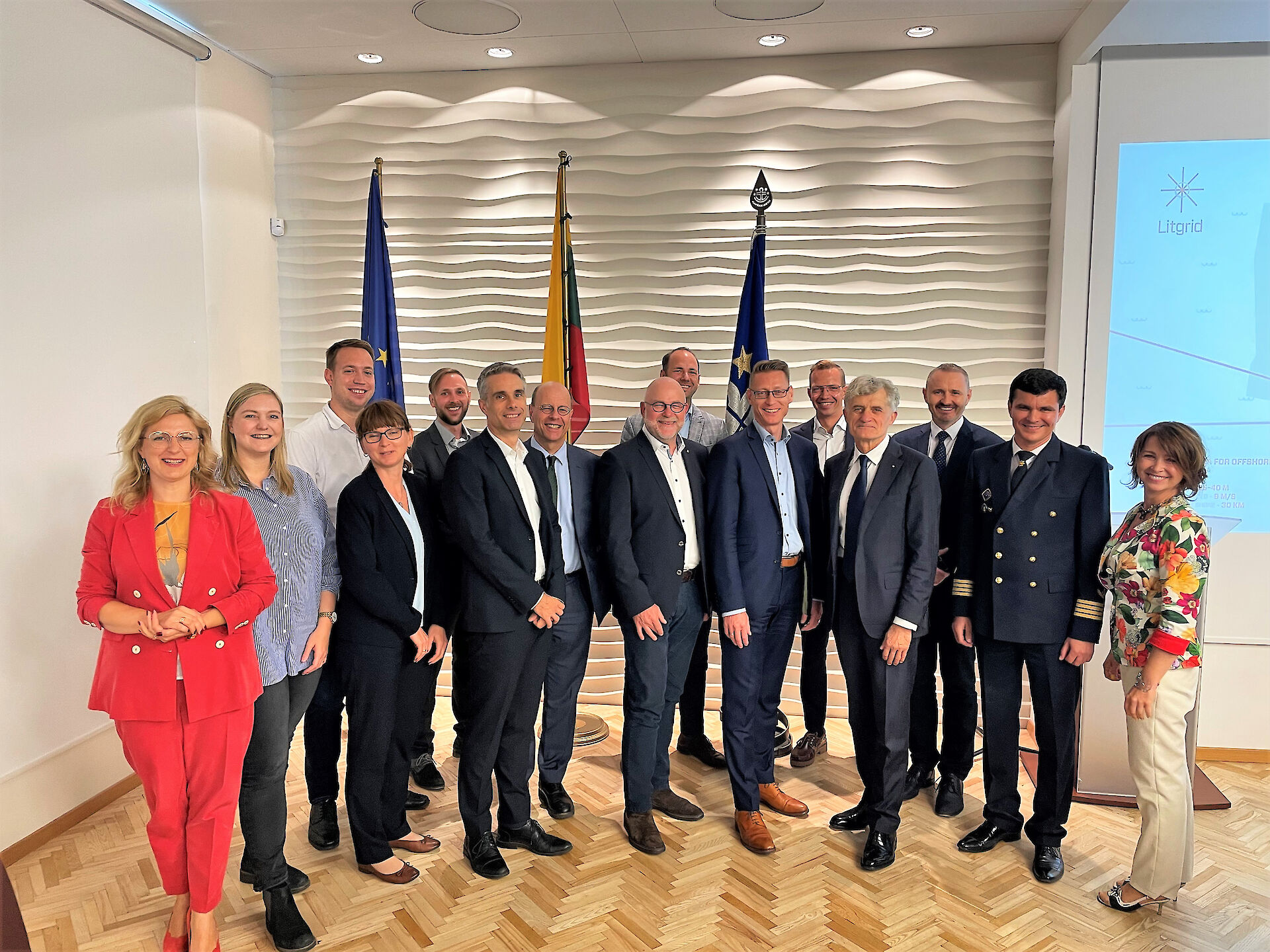

14 Jul 2022 09:50 Economy
A delegation comprising a total of ten high-ranking representatives of the ports of Hamburg, Brunsbüttel and Lübeck recently participated in a three-day information program in Klaipėda. This was headed by Lutz Birke, Head of Port & Innovation at the City of Hamburg’s Ministry of Economics and Innovation. Against the present background of worldwide disruption of logistics chains, the repercussions on land and sea transport of the Ukraine war, the special challenges for port authorities and business posed by the energy transition plus the implementation of ‘green‘ port policy, the comprehensive programme included an intensive exchange of expertise. “The visit to Klaipėda offered profound insights on the topics of importance for the future now being addressed by our ports. Among these are securing energy supplies, e.g. with LNG, the challenges of worldwide disruption of supply chains, and also making a shore power supply available for both container and cruise ships,” said Lutz Birke, adding that “these topic groups are immensely suitable for the process of learning from one another and jointly initiating projects.”
During the visit to KSSA - Klaipėda State Seaport Authority, its Director-General Algis Latakas stressed Germany’s importance for Lithuania’s sole seaport. “Germany is by a wide margin the Port of Klaipėda’s most important seaward trading partner. Good relations with German ports form a reliable basis for handling seaborne imports and exports,” emphasized Algis Latakas. Six container liner services link the Port of Hamburg with Lithuania. All of these call at the Port of Klaipėda. Hapag-Lloyd, Samskip, Yang Ming and Unifeeder shipping lines currently call with their own vessels, while CMA CGM, Cosco, Diamond Line, ONE and Sealand do so through slot capacities. Containerships with slot capacities of between 870 and 1,400 TEU are deployed. Depending on the direction and the number of other ports in a rotation, as a rule transit time between Hamburg and Lithuania is between two and four days. In addition, there is a direct Ro-Ro service between the ports of Kiel and Klaipėda, while the Port of Lübeck is linked via Trelleborg with Klaipėda by an intermodal RoRo service.
A visit to the FSRU - Floating Storage and Regasification Unit - terminal operated by KN - Klaipėdos Nafta proved of great interest to members of the delegation. With import terminals for handling LNG now under construction at German ports, the visit to this KN facility set off a lively exchange on questions of project implementation, the special challenges of safe operation, and the logistics processes involved in handling LNG. The first LNG - liquefied natural gas - terminal was already opened in Klaipėda in 2014. In Hamburg supply of shore-based power to all terminals is meanwhile ensured by 2024.
A further programme point was the visit to the Klaipėda Free Economic Zone, Lithuania’s largest of its kind. Over 45 investors and around 100 companies are already successfully settled and trading there on an area of 412 hectares. The programme also included a tour of the cruise terminal and an exchange of information with representatives of Lithuanian port cargo-handling companies.
Port of Hamburg Marketing CEO Axel Mattern and Marina Basso Michael, HHM’s Regional Director - Europe, look forward to deepening cooperation between the ports of the Hamburg Metropolitan Region and Klaipėda. “This cooperation will require strengthening of the maritime sector from both sides, and focuses on current problems such as truck driver shortage, the debate on new markets, and expansion of intermodal trades. Along with the development of disruption-free transport chains for supplying business and consumers in the hinterland, the topics of environmental protection and the use of renewable energy sources are also of immense importance,” said Axel Mattern. Marina Basso Michael added: “Hamburg and Klaipėda share a long and deep friendship. This was initially built up primarily through cooperation on various EU-backed projects. With this visit, I am delighted to strengthen this, and gain new partners.”
Deepening of cooperation between the two ports was agreed in Hamburg with the signature of a memorandum of understanding during the visit to Hamburg by Dr Marius Skuodis, Lithuanian Minister of Transport and Communications, in May. This aims to foster exchange of traffic and market data and to promote transport corridors between the markets with joint marketing activities. Especially since the Russian invasion of Ukraine, the largest of the Baltic republics is even more interested in securing new markets. All the partners will benefit from the expansion of cooperation with the port and logistics centres of Hamburg, Brunsbüttel, Kiel and Lübeck.
High-ranking representatives of the ports of Hamburg, Brunsbüttel and Lübeck completed a three-day information programme in Klaipėda.